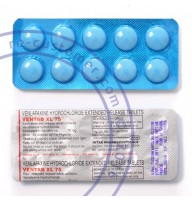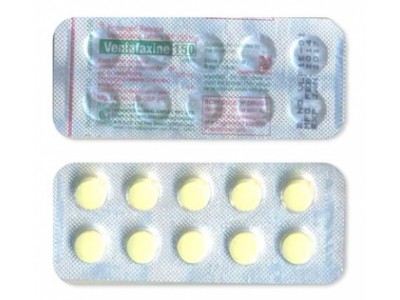Effexor, also known as venlafaxine, is primarily prescribed as an antidepressant medication belonging to the serotonin-norepinephrine reuptake inhibitor (SNRI) class. While Effexor is not specifically approved by regulatory agencies for the treatment of anxiety disorders, it is often prescribed off-label to manage certain types of anxiety.
Effexor works by increasing the levels of serotonin and norepinephrine in the brain, which are neurotransmitters that play a role in mood regulation. This mechanism is believed to contribute to its potential efficacy in reducing symptoms of anxiety, particularly in cases where anxiety is comorbid with depression.
Research and clinical practice suggest that Effexor may be beneficial for generalized anxiety disorder (GAD), social anxiety disorder, and panic disorder. It can help alleviate symptoms such as excessive worry, fear in social situations, and sudden panic attacks. Some studies indicate that SNRIs like Effexor may provide additional benefits over selective serotonin reuptake inhibitors (SSRIs) in treating anxiety disorders, possibly due to their dual action on serotonin and norepinephrine.
However, the effectiveness of Effexor for anxiety can vary from person to person, and it may take several weeks to notice significant improvement in symptoms. Like all medications, Effexor can cause side effects, including nausea, dizziness, insomnia, and sexual dysfunction. In some cases, it may increase anxiety symptoms initially before they improve.
Before starting Effexor or any medication for anxiety, it's crucial to discuss with a healthcare provider to determine the most appropriate treatment approach based on individual symptoms, medical history, and other factors. Therapy and lifestyle modifications are often recommended alongside medication for comprehensive management of anxiety disorders.
Overall, while Effexor is not specifically labeled for anxiety disorders, it is sometimes used off-label and can be effective for reducing symptoms of anxiety, particularly when anxiety co-occurs with depression. Close monitoring and regular follow-up with a healthcare provider are essential during treatment to assess effectiveness and manage any potential side effects.

